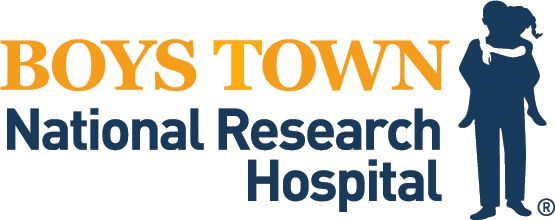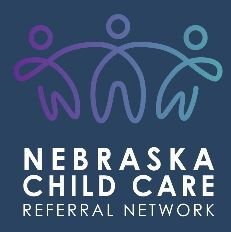Nebraska Child Care in Crisis, New Survey by Buffett Institute Finds
The COVID-19 pandemic continues to compound Nebraska’s child care crisis, according to a new report from the Buffett Early Childhood Institute at the University of Nebraska.
The Nebraska COVID-19 Early Care and Education Provider Survey III: Holding It Together—and Hanging by a Thread is the third in a series of reports over the past two years that examines the impact of the COVID-19 pandemic on Nebraska’s child care professionals and its implications for practice and policy.
The survey found that two-thirds of providers have experienced income reductions in the past year and that staff turnover is rampant. Nine in 10 providers employing staff have had difficulty hiring for open positions, citing a lack of applicants and inability to offer sufficient pay. Two-thirds of child care employers experienced staff turnover, with nearly 7 in 10 providers saying staff were leaving the field of early childhood entirely.
The survey, conducted in February, focused on owners, operators, and administrators of licensed care and education programs. More than 750 providers responded to the survey, roughly a quarter of all licensed providers in the state.
“This survey provides additional direct information about the impact of COVID-19 on the financial and physical health of the early care and education workforce,” said Kate Gallagher, director of research and evaluation at the Buffett Institute and one of the report’s authors. “We hope this information will help guide state and community efforts to support the early childhood professionals whose work is so essential for children, families, and communities in this state.”
Nebraska Early Childhood Campaign Launching Soon
Collaboration and months of planning will pay off later this month when a statewide public outreach and education campaign launches in Nebraska.
Communities and organizations are coming together in a public-private partnership to increase awareness of the need for equitable access to early childhood education and to underscore the role of early childhood educators in providing quality experiences for young children.
The Buffett Early Childhood Institute is coordinating the campaign in collaboration with many other early childhood partners and stakeholders, including more than 20 early childhood champions who are participating in an advisory role. The Institute has joined with Neimand Collaborative, a nationally recognized social impact firm with significant expertise in early childhood education, to lead implementation of the campaign.
Principal funding is provided by the U.S. Department of Health and Human Services’ Preschool Development Grant. Additional funding is provided by the Holland Foundation and the Buffett Institute.
Be on the lookout for more information on June 15! You can also access the campaign overview and FAQ.
To stay informed on latest campaign happenings, click here.
Spring 2022 PD for All Series Features New Learning Opportunity in June
The Buffett Early Childhood Institute’s Spring 2022 Professional Development for All series, which offered webinars and a book study, will soon begin a new chapter.
This new offering, Community of Practice for Early Childhood Educators: Funds of Knowledge in Children’s Learning, is a four-part online series, facilitated by two local early childhood educators and the Institute’s Amy Schmidtke. The goal is to deepen educators’ understanding of the funds of knowledge approach as they support one another bringing this learning to life in their classrooms. Educators will focus on how to learn from families, integrate community assets into the classroom, and help children connect meaningfully to the curriculum through what is personally relevant to them.
The series will run on Tuesdays, June 7, 14, 21, and 28, from 6 to 7 p.m. CDT. You can register here.
Learn more about the community of practice series and access the presentation materials from the three spring webinars on our website.
Convening Marks First Step Toward Improving Career Pathways for Early Childhood Professionals
More than 70 higher education faculty from 15 colleges and universities across Nebraska met recently in Lincoln to tackle problems within the early childhood field and take steps toward establishing equitable, affordable, and accessible pathways for all early childhood professionals.
Joining faculty on May 6 were leaders from state and community colleges, public and private universities, the Nebraska Department of Education (NDE), and the Nebraska Association for the Education of Young Children (NeAEYC).
The full-day convening, Transforming Early Childhood Preparation With Respect: Opportunities to Challenge Our Problems of Practice, provided discussion time for attendees to problem-solve how to transform early childhood education preparation to meet the needs of current students and professionals, according to Susan Sarver, director of workforce planning and development at the Buffett Early Childhood Institute, which hosted the convening.
Feedback from conversations at the May 6 event was collected and is being reviewed by the Institute’s workforce team, looking for common themes and action steps. In addition, faculty who were unable to attend in person will be invited to a virtual convening that will summarize conversations from May 6, along with research in early childhood competencies, apprenticeships, field experience, credit for prior learning, and creating a career lattice.
Learn more about the convening here.
Nebraska Launches New Transition Toolki
It’s the first day of Kindergarten—kids get dropped off at school, where they meet other children for the first time, encounter new teachers, and experience a brand-new schedule and structure—all in a setting that is likely unfamiliar to them. This transition can be a whirlwind for children, families, and educators.
The Nebraska Transition to Kindergarten Toolkit and Resource Guide was created to support the process between preschool and Kindergarten. It’s a new guide for families, school district staff and Kindergarten teachers, as well as early child care professionals.
“This was an opportunity for Nebraska to think through how to have better communication and collaboration between the three different types of adults—parents, early childhood professionals, and those working in schools and school districts—who impact children's transitions the most,” said Lisa Roy, former director of program development at the Buffett Early Childhood Institute at the University of Nebraska and project lead for the toolkit and resource guide. “All of those adults make a difference in how well a transition happens for a young child.”
Read an Early Years Matter column on the toolkit by the Buffett Institute’s Ashia Aubrey here.















